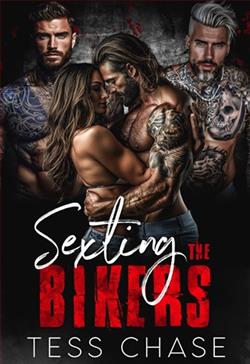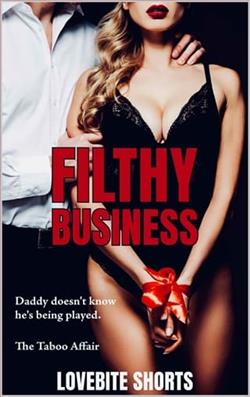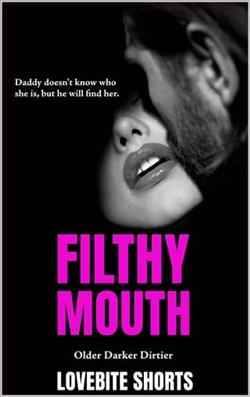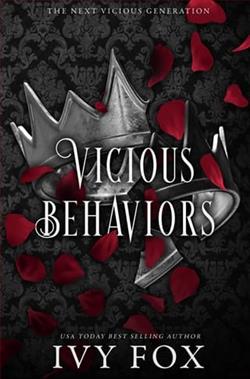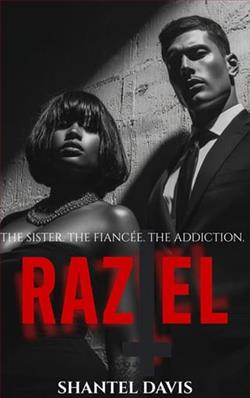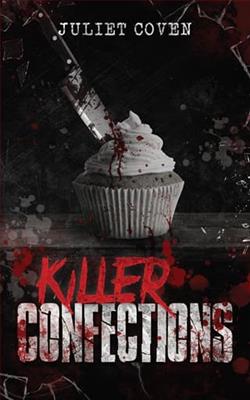Page 42 of Claimed By the Mothman
“It’s more like a purpose,”Goldie said, and spunEchoes of the Broodhometowards her, revealing a diagram. A diagram filled most of the page: a figure rendered in rust-colored pencil, the lines delicate but deliberate. Long limbs. Folded wings. Eyes like voids. There were elegant symbols etched across its throat, and sharp at the ends like broken script. She’d seen them before. On him.
Her throat tightened.“Yeah,” she said quietly. “That’s about right.”
“Most of the Harbinger accounts mention a Doom,” Goldie said, her voice pitching up like an over-caffeinated professor halfway through a TED Talk. “Not like an apocalypse per se, but more like a tipping point.”
She flipped a few pages. “One journal—like, mid-century, kind of rambling—talked aboutthe wings that beat before the breach. Said that Harbingers don’t predict disaster, but they do show up to witness it.”
Nell’s gaze dropped back to the drawing of the Harbinger. The eyes were just dark shapes, but they felt like they were watching. She imagined them glowing red, and gulped.
Goldie kept going. “It’s not that they want destruction. It’s that they recognize when that destruction is happening and they move towards it. Like moths to…well. You know.”
“And that’s what was happening to me,” Nell said softly.
“Yeah,” Goldie replied. “But one of the accounts I found talked about a Doom that was arrested by something they called aclaiming.”
The word landed like an arrow in Nell’s chest. She saw him again. Not the quiet, awkward presence in the hallway, but the one who’d stood blazing in the dark, all wings and fire andwill, with his voice like thunder splitting the silence:
I CLAIM HER.
She remembered feeling yanked sideways through her own skin and dragged back from the edge of something she hadn’t known was happening.
“Apparently, Harbinger-class cryptids are the only ones in their broader cryptid family who have the drive to claim—bond.” Goldie tapped theBOND. "From everything I found, it’s always species-exclusive, mothperson to mothperson. There’s no record of it crossing that boundary.”
She looked up and winked. “Until you, apparently. So…congrats on being a biological outlier?”
“You’re welcome,” Nell muttered.
“According to one of these dusty old sources, a bond isusuallya courtship-type situation. A Harbinger tunes into someone’sresonance—”she made dramatic air quotes around the word “—and there’s this whole formal process before it escalates into a claiming. Signals, consent, ceremony—basically, cryptid dating.”
Goldie flipped a few pages, then circled something with her pen. “But here’s where it gets messy. Bonds don’t actually fully take unless they’re mutually reciprocated. It’s not supposed to be an instinctual grab. Think of it like a marriage proposal. Most people don’t drop to one knee unless they’re pretty sure the answer is yes. But that’s kinda what happened here, best I can tell. He proposed. Mid-crisis. And boom—the bonding cycle started.”
Nell stared at the matrix, incredulous. “You’re telling me this is basically some kind of metaphysical arranged marriage?”
Goldie’s mouth twitching at the corners. “What it boils down to is that by claiming you, your sexy mothboy started an official bonding process, tethering it to himself and casting it out towards you like a lure. But unlessyou—the recipient—respond in kind by accepting it and claiming him back, the whole thing stays unbalanced until it detonates and dissolves.”
“So, you’re saying I have to accept it or everything goes to shit.”
Goldie held up a finger. “No. Yes.Maybe.”
Nell’s eyes narrowed.
“It’s technically voluntary,” Goldie went on, carefully. “The claimee—you—can choose to accept the bond or not. That’s part of the system. It’s not a trap. But…”
She flipped through a nearby book. “If the bond’s rejected? It can backfire on the claimer. Depends on how deep the claim went when it was cast, how long it’s been open, and how entangled they are in it. That’s why it’s like a marriage proposal. They usually only risk it when they’re damn sure the answer’s going to be yes. Because if it’s ano,it’s not pretty.”
“Like… he might die.” Nell’s voice was barely a whisper.
“Like he might die. But not always. It’s complicated. which brings us tothisproblem.”
Goldie tapped theLUSTRUMcolumn like it might bite and took a breath.
“Okay, now we’re into the deep end. The Lustrum’s…weird. It’s kind of a liminal place? A threshold? One journal called it aritual sinkand another called it areverberation of unmet fate."She tapped an open book with her pen cap. “This one said it’sa mirror that eats. It reflects what you are, strips out everything that doesn’t fit, and offers you the remainder.”
Nell felt something twist low in her chest. She remembered the weightlessness, the unraveling, the way her own name had started to feel like a stranger’s. “That’s what it was doing to me?”
Goldie nodded slowly. “It was unraveling you to make room for whatever version came next. Or absorbing you. Or syncing with you.”
She paused, eyes flicking toward the typed letter Mr. Lyle had given Nell. “Which…makes this weird-ass note even weirder, now that I’m thinking about it.”









